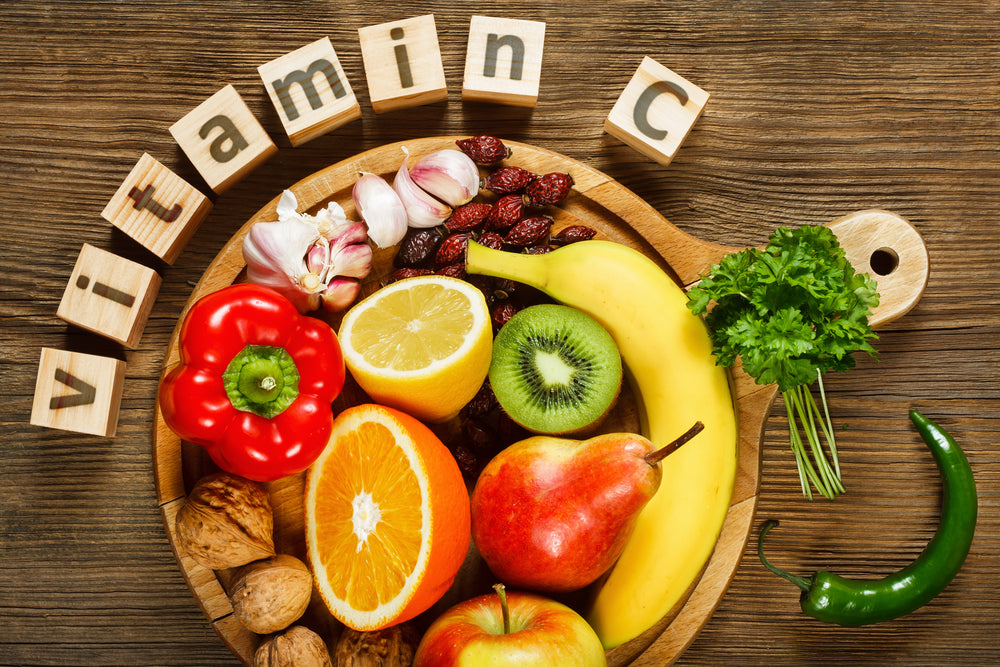Many mammals produce their own vitamin C, but humans lost that ability many years ago, through lacking a specific enzyme within the body. Fortunately, as always, nature has come to the rescue since vitamin C is readily available in many foods, particularly fruits and vegetables. However, it’s quickly lost during food preparation, cooking and storage which is why it needs to be eaten very regularly.
Clinical Nutritionist Suzie Sawyer tells us everything we need to know about Vitamin C.
What is it?
Vitamin C is probably one of the most well-known vitamins. Whilst James Lind recognised during the 1700’s that lemons and limes could prevent the deficiency disease of scurvy, no-one realised it was actually down to a lack of vitamin C. It was first discovered by a Hungarian Biochemist, Albert Szent-Gyorgyi in 1928 and further work was then carried out to fully understand its chemical structure and its wonderful health benefits to the body.
Vitamin C, also known as ascorbic acid, is water-soluble. This means it is not stored in the body, unlike vitamins A, D, E and K, and so needs to be consumed every day. Researchers and experts may differ in their views of how much vitamin C we need to consume daily, but one thing’s for sure: it plays an essential role in our daily nutrition.
What does it do?
One of the most important functions of Vitamin C is the formation and maintenance of collagen which is essential for growth, skin health and repair of bones, tendons and cartilage. This is the reason why vitamin C is often known as the ‘beauty vitamin’ and why it’s found in skin preparations. Eating sufficient vitamin C will certainly help keep the skin looking young.
Additionally, vitamin C is our primary water-soluble key antioxidant and our first line of antioxidant protection. It works alongside vitamin E, our key fat-soluble vitamin, and the two complement each other at cellular level.
Vitamin C also plays a critical role in immune function by enhancing white blood cell production and providing antiviral properties.
Where is it found?
Vitamin C is rich in most fruits and vegetables. However, it’s especially high in kiwi, papaya, citrus fruits, strawberries and sweet peppers. In fact, the easiest way to ensure you’re getting plenty into your diet is by looking at the colour on your plate. Have you eaten a fruit and vegetable rainbow? It is quite difficult to eat all the colours of the rainbow in one meal but it’s certainly possible over the course of a day. Fruits and vegetables with their rich and vibrant colours are packed with vitamin C, as well as other antioxidants and beneficial nutrients, so include as many as you can every day.
How to eat more
Whilst vitamin C is lost during cooking, it does leech into the water if you’re boiling or steaming. So using the ‘vegetable water’ to make a sauce or gravy, or refrigerate it to use in a juice or smoothie at a later date. Alternatively, eating fruits and vegetables raw is a great way of retaining all their wonderful nutrient content.
An easy way to boost your vitamin C intake during the day is to snack on fruits and vegetables; for example, eat crudités with hummus or blueberries as a morning snack or try a few slices of apple before bedtime (which can also help with sleep). Take a leaf out of the Mediterranean diet: they may not eat lots of vegetables at meal times, but they eat them at other times of the day or often as a starter to a meal.
It’s good to get into the habit of having vegetables with every meal, whatever you’re eating. For example, you may have prepared a delicious chilli con carne with rice, but what’s wrong with having a side of broccoli with it?
Need to know
Around 70-90% of vitamin C is absorbed fairly rapidly and excreted through the urine after about 30 minutes. For this reason, the body can’t absorb large amounts of vitamin C in one dosage, when taken in supplement form, hence the often-heard advice to take it in divided dosages throughout the day.
It’s also worth remembering that freshly sliced cucumbers, if left standing, lose around 45% of their vitamin C content within the first three hours. So, with all fruits and vegetables, prepare, chop and eat as quickly as possible!
So with a little thought and planning, it’s not difficult to eat good levels of vitamin C every day and you’ll quickly notice the benefits to your health.

